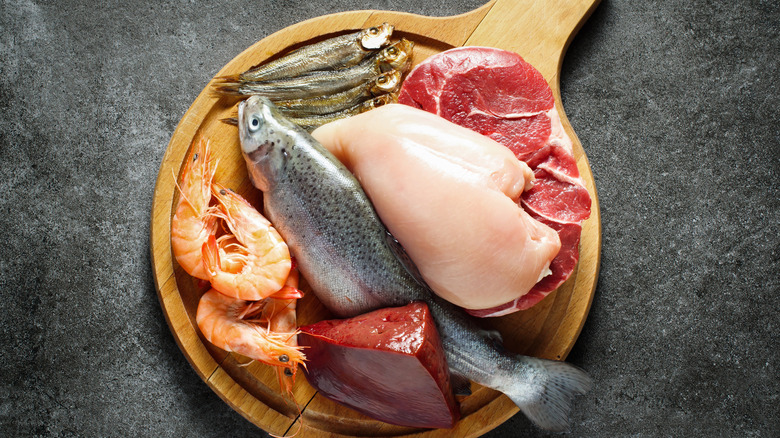Are There Any Vegetables You Shouldn't Eat If You Suffer From Gout?
Gout is a complex, painful form of arthritis that affects over nine million Americans, according to the Alliance for Gout Awareness. There is a long list of foods to avoid to minimize the risk of gout, but are there any vegetables included on that list?
Gout is characterized by severe joint pain, usually coming in sudden attacks at night that can affect the ankles, knees, wrists, elbows, and fingers (via the Mayo Clinic). A typical place for joint pain is often in the big toe, a distinctive attribute of gout. Over time, the joints can become inflamed and swollen, with attacks eventually lasting longer, affecting more joints, and limiting range of motion.
According to the Mayo Clinic, gout is caused by a buildup of uric acid, which your body produces in order to eliminate purines, materials that naturally occur in the body. The uric acid is either too high or isn't properly processed by the kidneys, leading to needle-like urate crystals forming in the joints and tissues. This creates pain and inflammation. Since women usually have lower uric acid levels, gout occurs more commonly in men.
Do certain vegetables increase your risk of gout?
Some foods are known to increase your risk of gout, particularly foods that are naturally high in purines (via Healthline). If your body has a hard time processing purines and has an excess of uric acid, it may help to avoid these foods. Red meats and organ meats are typically high in purines, according to WebMD. Other foods and drinks to avoid include shellfish, beer, grain alcohol, and products with high fructose such as fruit juices.
MedicineNet also recommends staying away from vegetables with moderate amounts of purines, such as asparagus, cauliflower, green peas, mushrooms, and spinach. However, research shows that the aforementioned veggies aren't actually associated with an increased risk of gout. In a 12-year study published in the New England Journal of Medicine, it was found that purine-rich vegetables actually had no effect on the likelihood of a person suffering from gout. However, it was confirmed that consuming high amounts of meat and seafood can increase your risk, and consuming low-fat dairy may actually have a protective effect. Other identified risk factors included high body-mass index (BMI), older age, and alcohol use.
Lastly, if you're looking for foods that can minimize your risk of gout, there's some evidence showing that cherries are a good option.


